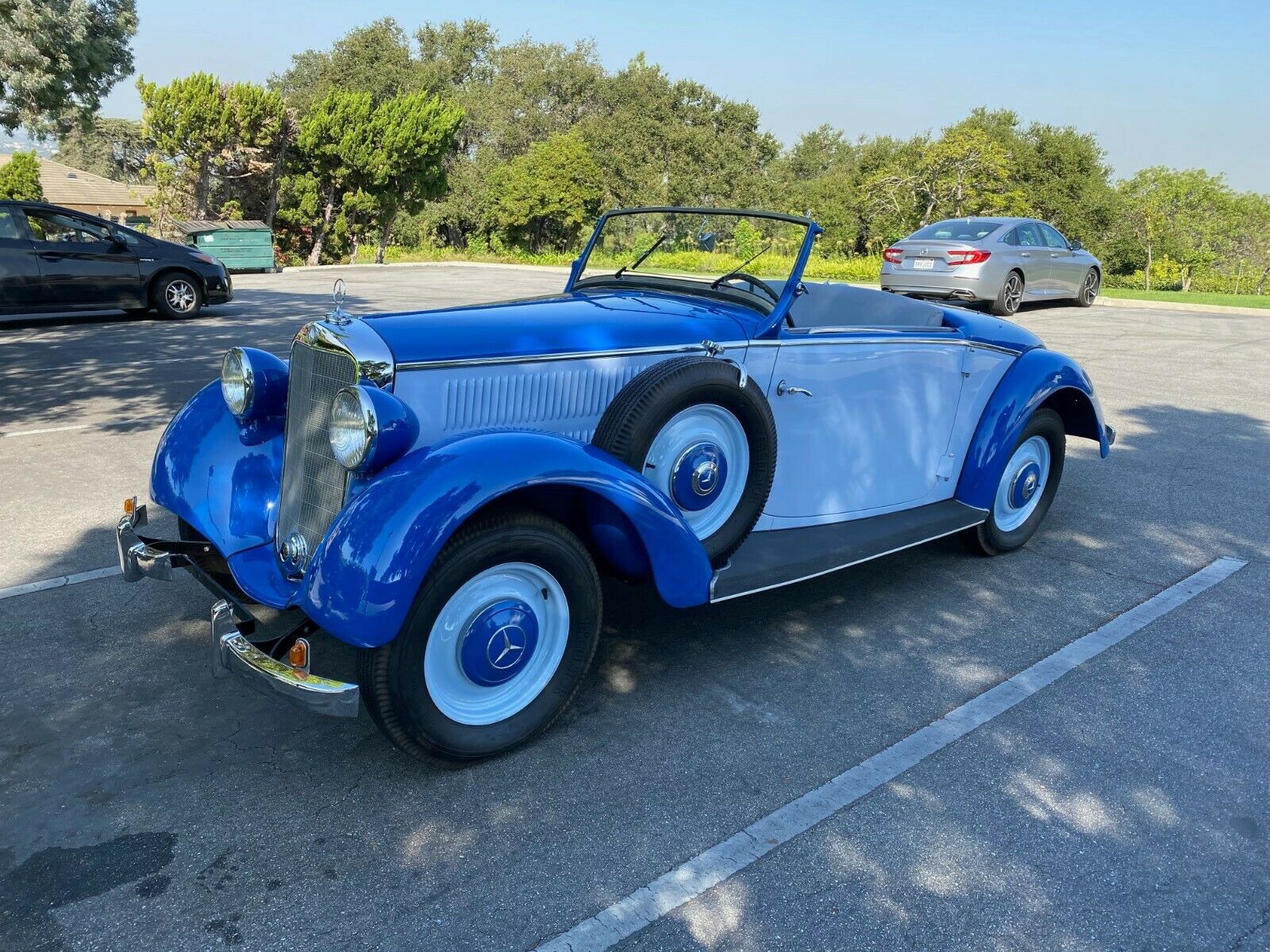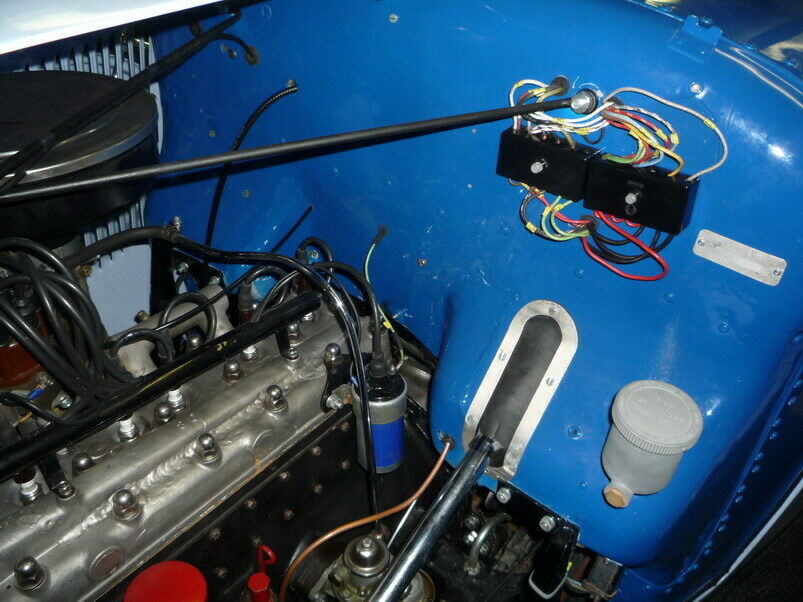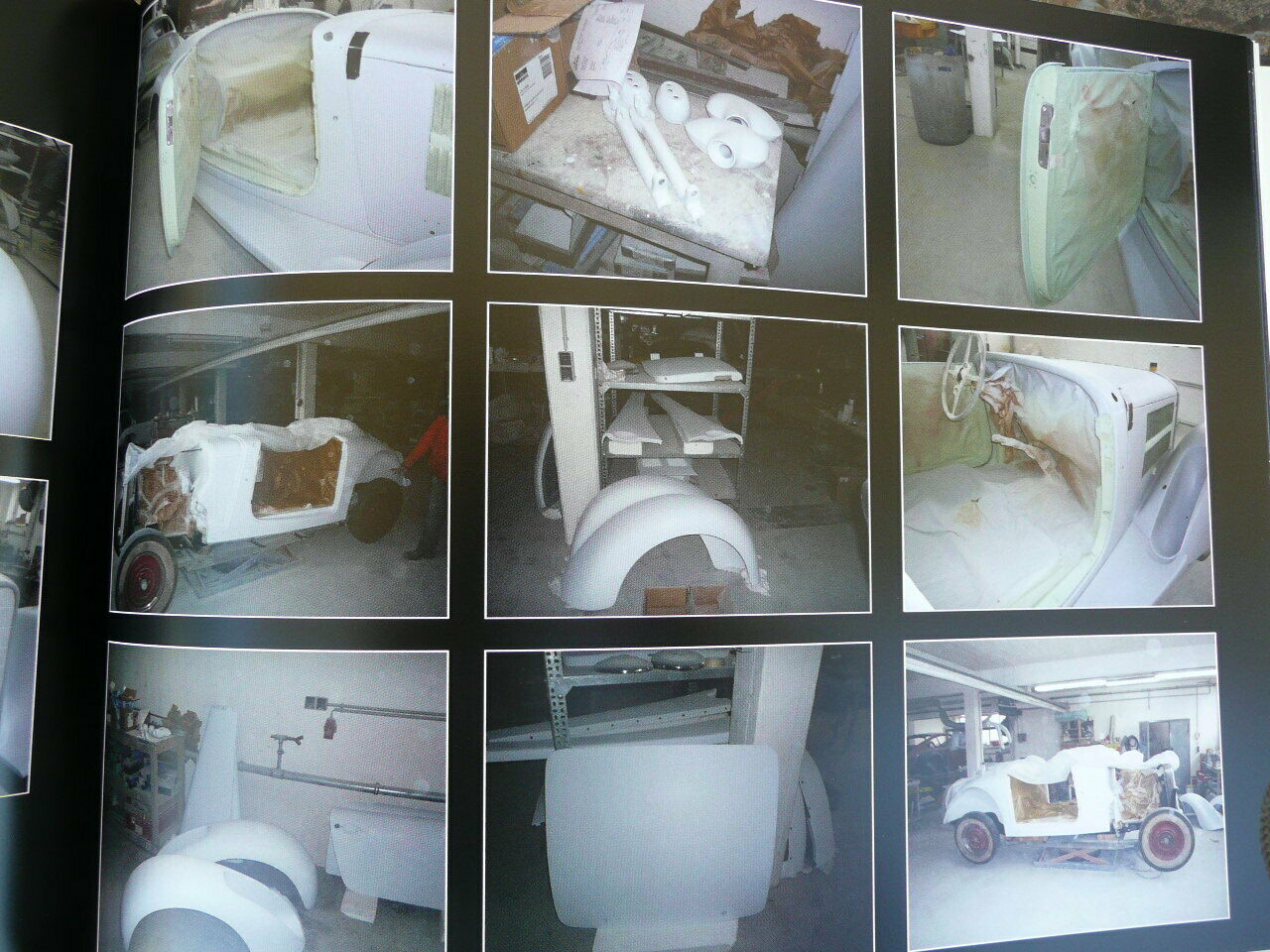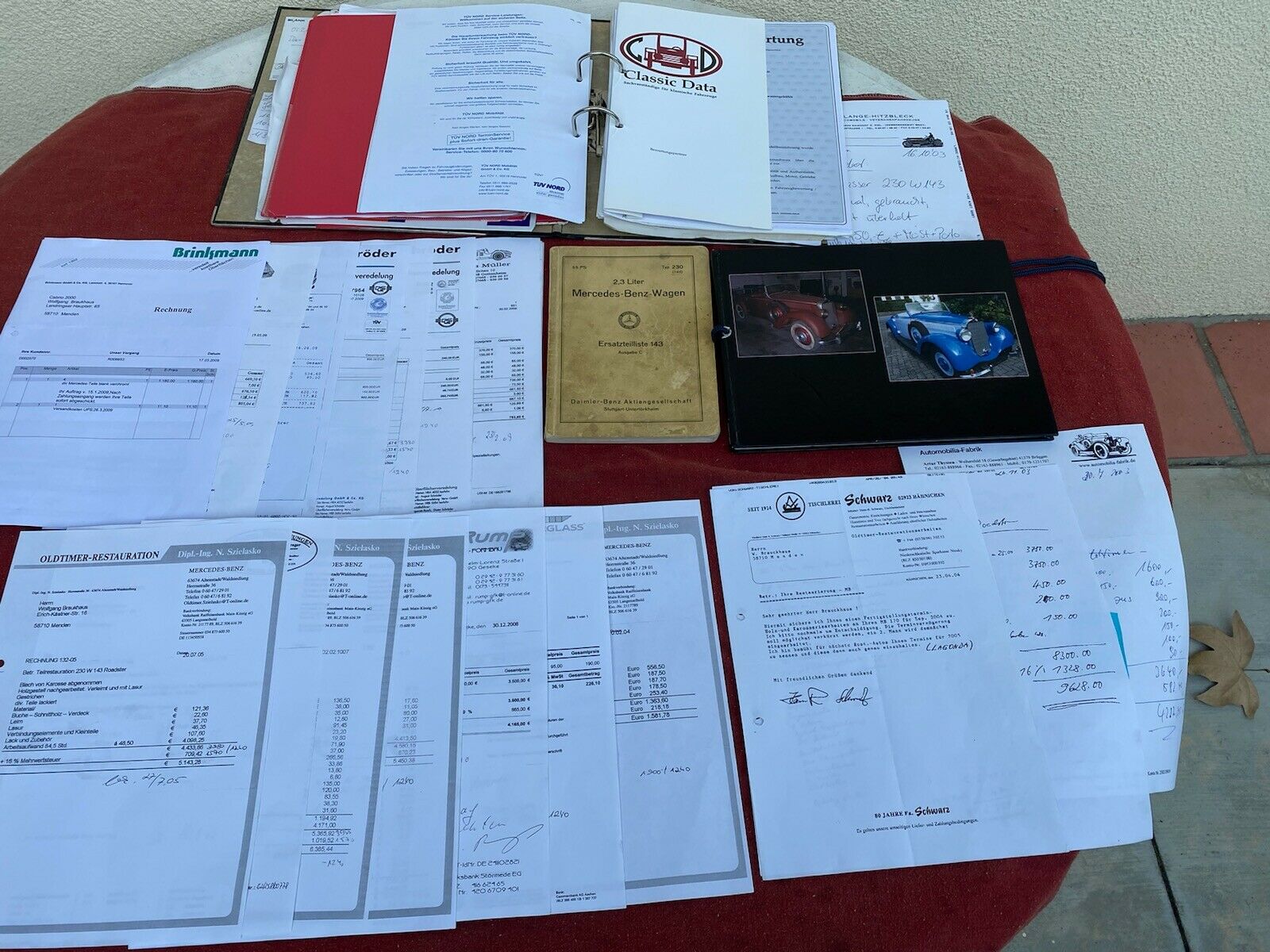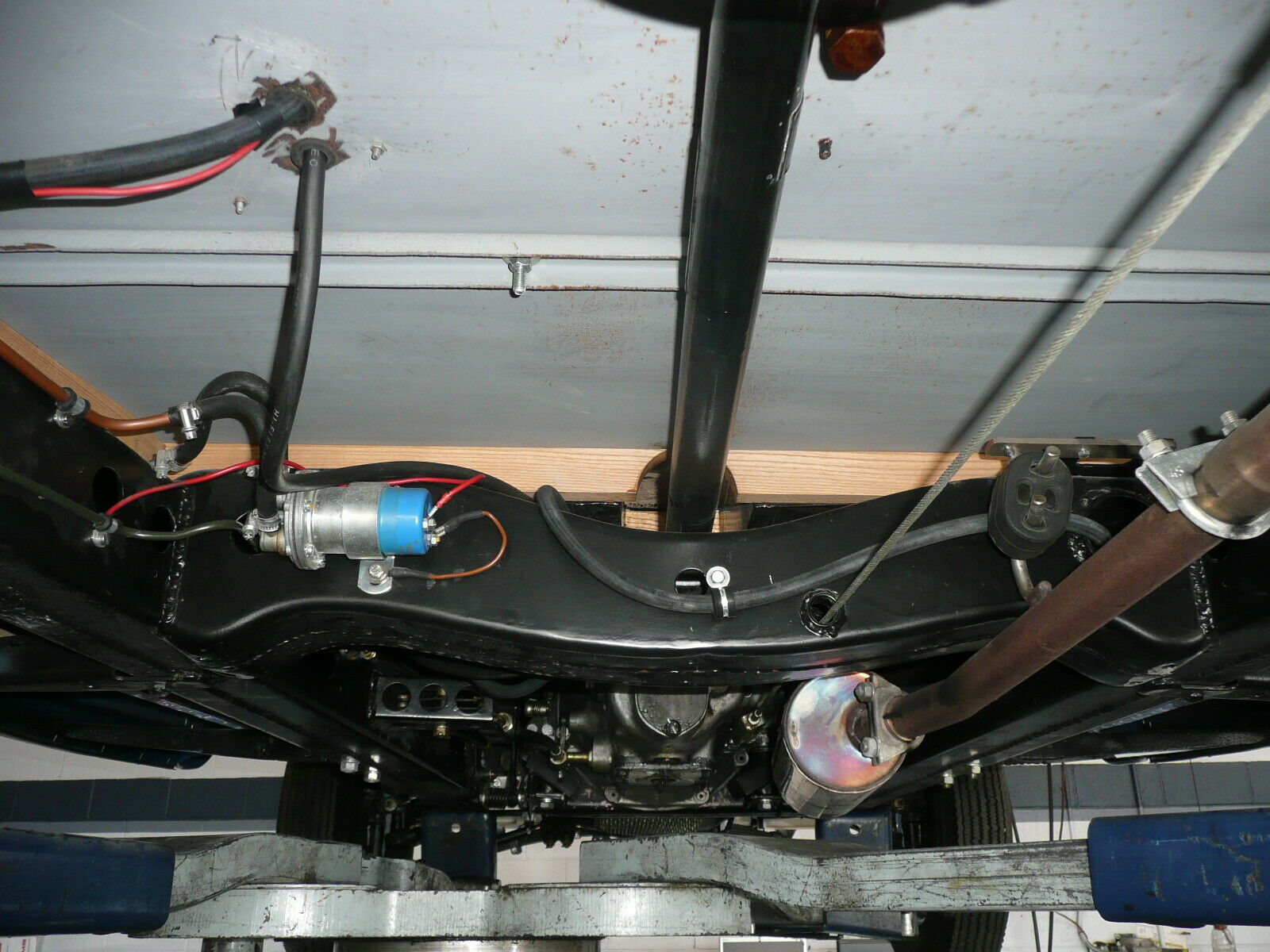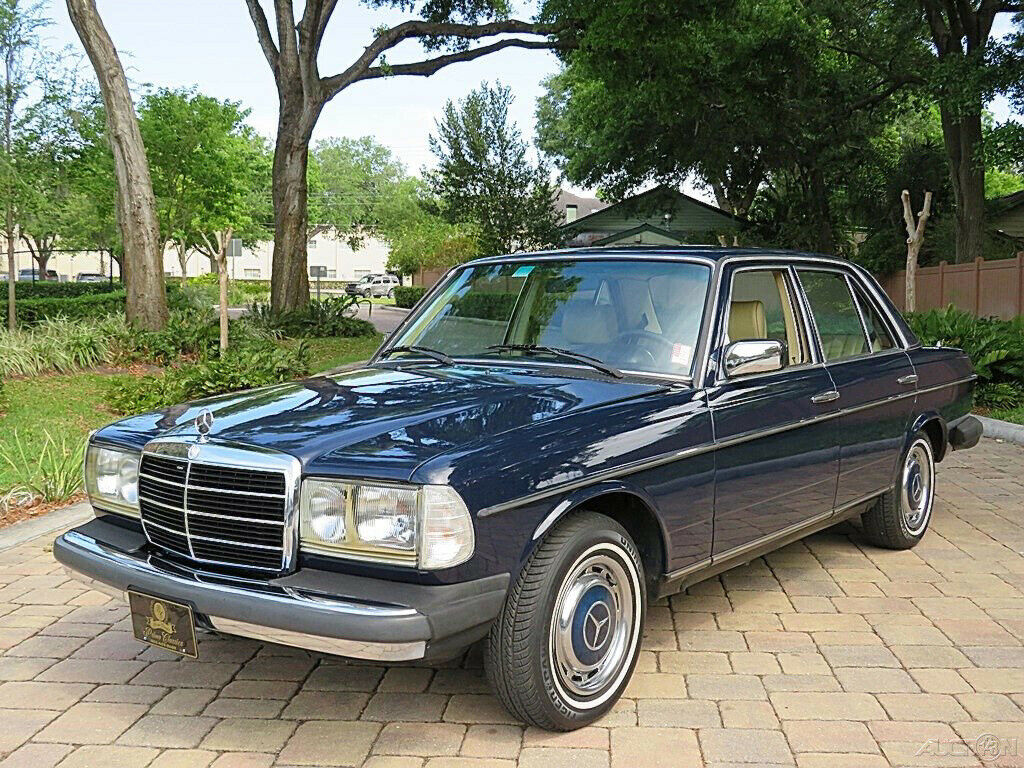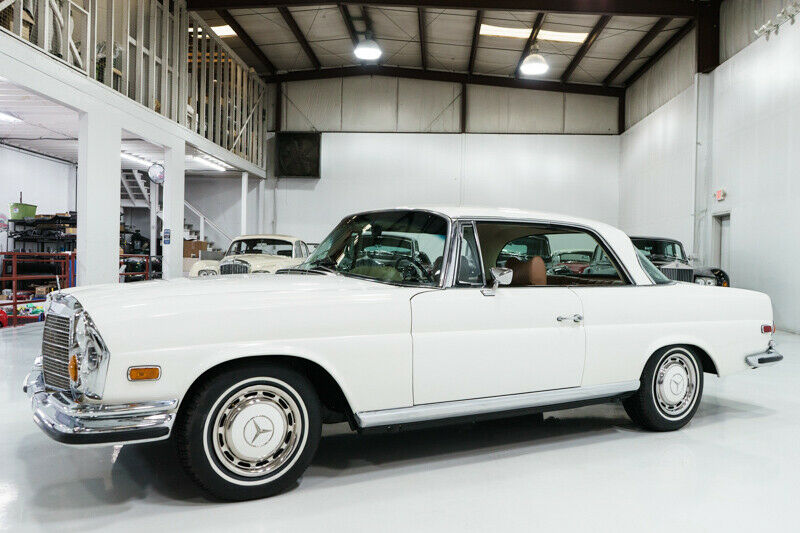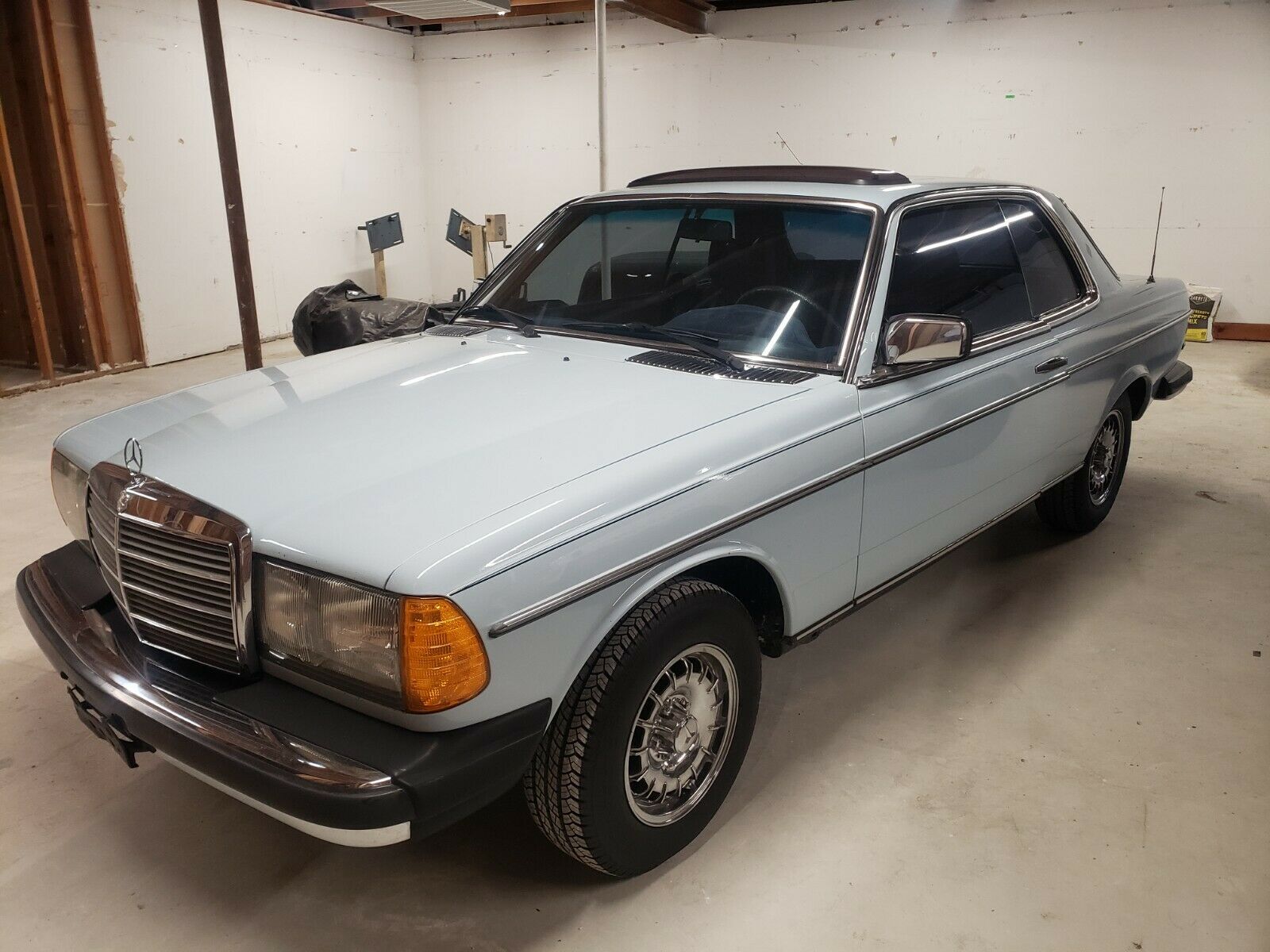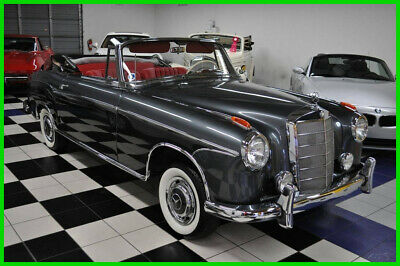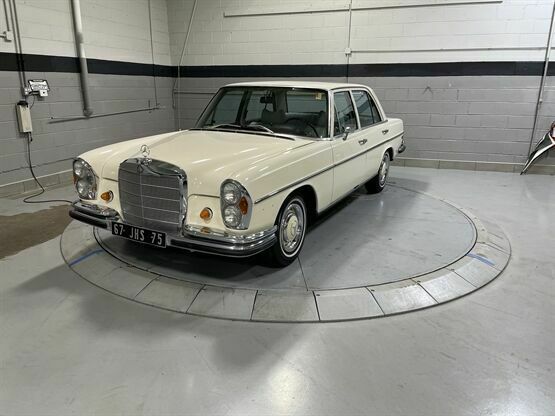-40%
1937 Mercedes-Benz 200-Series 1937 Mercedes Benz 230 N Roadster
$ 97680
- Description
- Size Guide
Description
This 1937 Mercedes-Benz 230 is one of 38 two-seat roadsters built on the “Normal” wheelbase variant of the W143 platform during a single year of production. The car, chassis 155124, was ordered new from the Postal Service for a Rally 2000 km gross Germany . It was exported to the US at some point following World War II and returned to Europe in the 1990s. A restoration was carried out in Germany between 2003 and 2013, and the vehicle was relocated to California 2017 . Finished in two-tone blue over grey leather, the car features a folding soft top, side-mount spare wheels, and a full trunk and roll-up windows that are believed to have been specified by the postal service. Power is provided by a 2,229cc L-head inline-six equipped a Solex downdraft carburetor, and additional equipment includes a four-speed manual transmission with a fass Gear , swing-axle rear suspension, and four-wheel hydraulic drum brakes. This W143 roadster is now offered on behalf of the current owner with a copy of its factory order sheet, a photobook documenting the restoration, invoices covering a portion of the restoration labor totaling 100k Euros, a parts catalog, and a clean California title.The Type 230 model was introduced in 1936 as an evolution of the long-wheelbase variant of the Type 200 W21. In 1937 a standard-wheelbase version, the 230 Normal, was added to the platform, and the in-house designation for both models switched to W143. Before being discontinued after one year, the shorter 2,700mm-wheelbase models were offered in a variety of body configurations, including a two-seat roadster. Special features on this example include roll-up side windows and a full trunk instead of a rumble seat.
The body was disassembled, stripped, and repainted in its current two-tone color combination during the restoration,and most of the Restoration was done by Mercedes Benz Type Referent Norbert Szielasko . The ash frame was also rebuilt during the project, and the brightwork was re-plated. Closeups of the finish, trim, and lenses are presented in the photo gallery below, as are images of imperfections, including a scratch on the right-front fender.
Steel 16” steel wheels feature blue hubcaps and wear Excelsior tires, as do the dual side-mount spares. The soft top is shown in its raised position in the gallery below, and when stowed is concealed under the bodywork behind the seat.
The interior is trimmed in pale grey leather over seating for two and features matching upholstery on the rear-hinged doors. Grey carpeting lines the footwells and trunk compartment. Additional features include an engine-turned dash fascia, a black four-spoke steering wheel, and a floor shifter with an ivory-colored knob.
VDO instrumentation includes a 140-km/h speedometer, a clock, a combination fuel level/oil pressure gauge, and a coolant temperature gauge. The five-digit odometer shows approximately 750 kilometers (~460 miles), fewer than 200 of which have been added by the current owner.
The 2,229cc inline-six features a dual-barrel Solex downdraft carburetor and was rated for 55 horsepower and 100 lb-ft of torque when new. Power is sent to the rear wheels through a four-speed manual transmission, and the car is believed to have been ordered new with special gearing.
Block stamping 155124 is shown above and can be seen in the gallery stamped on the chassis, data tag, and engine tag on the firewall. Body number 832602 is shown on the
karosserie
tag affixed to the door jamb and matches the number listed on the factory order sheet.
The 230 model features independent suspension all around. Double transverse leaf springs are utilized up front, while the rear incorporates swing axles with double coil springs on each side. Stopping is handled by four-wheel hydraulic drum brakes.
Postal Service
in Berlin, as well as an arrival date of June 9, 1937. Also shown in the gallery are a note from Daimler-Chrysler confirming that the car was delivered as a two-seat roadster, along with a description of the car’s history in German.
Images documenting the restoration are provided in a hardcover photobook, and invoices covering several aspects of the project are also included. The seller notes that much of the labor was carried out by Wolfgang Braukhaus himself and is not included in the total cost reflected by the invoices, which show outsourced labor. A Michigan title from 1970 is shown in the gallery along with German registration and expertise Report from 2013 and a parts catalog for Type 230 models.
